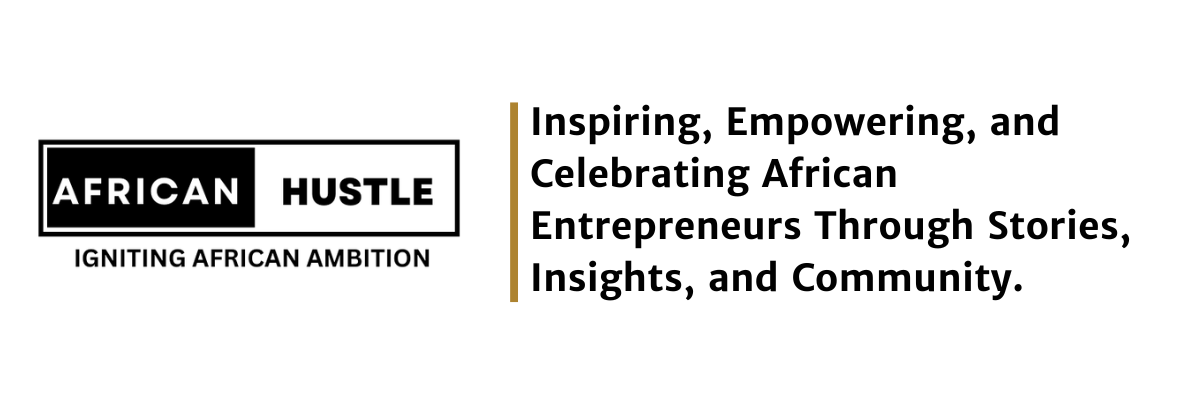
Welcome to African Hustle! Your bi-weekly dose of inspiration and smart insights into African entrepreneurship — featuring real stories about tech, culture, startups, founders, and innovations shaping the future of the continent.

Africa presents a $3 billion untapped opportunity in AI-powered local language content creation, driven by a massive language gap and explosive digital growth. Despite over 1 billion Africans preferring content in their mother tongues, less than 5% of online content is available in African languages, with disparities like Yoruba (50m speakers) having 10 times less digital content than Danish (5.5M speakers). Meanwhile, Africa has 570 million internet users and is growing at nearly 20% annually, yet major platforms like YouTube, Netflix, and TikTok largely ignore local languages, favouring English and French. This disconnect extends to advertising, where 72% of Africans ignore ads not in their native language, and local-language ads see up to 4 times higher engagement. AI-powered solutions are emerging to bridge this divide: DubAI in Nigeria offers AI dubbing of films into Swahili, Zulu, and Hausa at a tenth the cost of traditional methods; Kukua in Kenya transforms textbooks into Swahili audio for schools; and Ghana’s PodAI garners over 500,000 monthly listens by auto-generating Twi-language business podcasts. In Nigeria, Adàmọ̀ AI lets small businesses create Yoruba voice ads in minutes, with a $5/ad model targeting 50 million+ SMBs across the continent. Even entertainment is evolving, with 60% of Gen Z Africans following virtual influencers, paving the way for AI-generated content creators speaking. For African entrepreneurs, this is a rare chance to lead a high-impact, high-growth sector by using AI to localize content, empower communities, and turn linguistic diversity into a powerful competitive advantage.

Main Issue
Why African Entrepreneurs Must Embrace Intra-Africa Trade!
We’re at a crossroads.
Young Africans are leaving the continent in droves. Some are chasing better lives abroad. Some are taking on menial jobs just to survive. Others leave because they can't find the opportunities they deserve at home.
Yet, at the same time, people from China and other developed countries are moving to Africa to build businesses.
There’s something deeply wrong when an African youth is working as a waiter on a cruise ship in the middle of the ocean, while a foreigner is panning for gold and diamonds on African soil.
Don’t tell me there’s no opportunity here.
Yes, we’ve got leadership problems. That’s no secret.
But we’ve also got something more powerful: resources, people, and potential.
The Same Story, Over and Over Again
In 1969, De Beers, a British multinational, came to Botswana. The Batswana government formed a joint venture with them — Debswana. Today, Debswana earns about $4 billion a year from diamond mining.
But every year, Botswana has to split those billions with a foreign company. For what? Mining diamonds that are already in their backyard.
The DRC’s president said it best:
I've really had enough... Investors come with empty pockets and leave as billionaires.
DRC has a long history of shady mining deals, especially in copper and cobalt. They’ve traded away valuable resources for low-quality infrastructure. To put it more politically correct, we will say that it is ‘allegedly.’
This isn’t just DRC. Zambia had issues with Glencore. Nigeria with Shell. Liberia with Firestone. Guinea with Simandou.
Same script. Different countries.
Entrepreneurs Are Also to Blame
We are dropping the ball. If you are wondering why, then I’ll try to enlighten you.
We keep importing what we already have.
Angola imports milk and cream from Malaysia, UAE, Portugal, France, Ireland, Iceland, the Netherlands, Germany, and New Zealand. Meanwhile, South Africa produces 3.3 billion litres of milk every year.
Mozambique imports wheat from Russia, Canada, Australia, and others. But next door, in Zambia, wheat production is growing steadily.
Burkina Faso, Senegal, and Nigeria import 60% of their dairy from the EU. That cheap surplus milk hurts local farmers who can’t compete.
Even though Uganda can meet regional dairy demand, Nigeria still imports from Europe.
Intra-Africa Trade Isn’t Just Pan-African—It’s Smart Business
Only 17% of Africa’s exports stay on the continent. In Asia, it’s 59%. In Europe, it’s 69%.
That’s billions of dollars in missed opportunities.
The African Continental Free Trade Area (AfCFTA) could change everything. It’s the world’s largest free trade zone by population.
AfCFTA opens doors for:
Tariff reductions
Simplified customs
Regional supply chains
Access to new markets
But none of this matters unless we, Africa’s entrepreneurs and hustlers, make it happen.
What You Can Do
Audit Your Imports
What does your business bring in from outside Africa? Raw materials, packaging, equipment, food? Can you source any of it from another African country?Build Regional Supply Chains.
Start working with African farmers, producers, and manufacturers. Let “Made in Africa” mean made with African hands, networks, and partnerships.Solve Local Problems With Local Solutions.
If your country depends on imports that could be produced locally, you may be looking at your next startup idea.Collaborate Instead of Compete
When you build with fellow Africans, you grow the ecosystem. You're not just winning, you’re making room for others to win too.
That’s how nations grow. That’s how continents rise.
Building for Africa
Yes, we still face trade barriers, poor roads, and slow customs. But we’ve survived worse. Colonialism, apartheid, war, sanctions and genocides. And we’re still here.
Entrepreneurship starts with making money, but it’s sustained by purpose. You can only truly achieve the first by embracing the second.
It’s about seeing value where others don’t. Right now, the most undervalued asset on this continent is our connection to each other.
The future belongs to those who ask:
Why can’t we make this here?
Who in Africa can supply this?
What would it take to build this ourselves?
The answers could be your next million-dollar idea.
The next wave of African giants won’t come from copying Silicon Valley. They’ll come from bold founders who tap into Africa’s markets, networks, and resources.
So let’s trade with each other. Let’s build for each other.
That’s the real African Hustle.
Enjoyed this post? Share it with someone who might find it helpful and encourage them to subscribe!
If we missed something, we’d love to hear from you — hit reply and let us know what insights you want us to dive into next.
And if this email was forwarded to you, you can sign up here!

